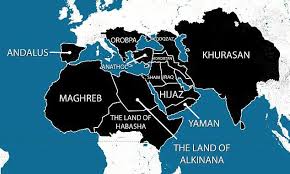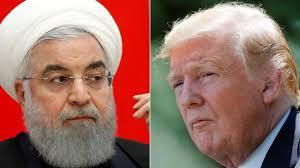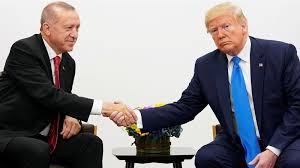Panic appears to have gripped the well-oiled jihadi enterprise in the Af-Pak region going by the growing demands for firm action against the surging sweep of the Islamic State, also known as Daesh. Leading the chorus is none other than the Lahore-based Hafiz Saeed, whose Jamaat-ud-Dawa (JuD) and Falah-e-Insaniat Foundation (FIF), have been blacklisted by the United Nations Security Council (UNSC) Resolution 1267. Both organisations are on the watch list of the Government of Pakistan as a concession to the world opinion. Now what made Hafiz (a title bestowed upon people who know the Quran by heart) see red is the reality check that the IS has become the magnet for jihadi foot-soldiers nurtured by him and fellow travellers in the Taliban, Haqqani Network et al.
The Year 2015 opened with a big bang for the IS when a dissident leader of the Afghan Taliban, Abdul Rauf Khadim, walked into its fold to be anointed as the chief for Afghanistan. Belonging to the Helmand province, he served the Islamic Emirate of Afghanistan, also known as Tehreek e Taliban Afghanistan in various capacities. Over the past one year Pakistan Taliban leaders from Orakzai, Khuram, Khyber agencies, Hangu district and Peshawar declared allegiance to the Caliph of Muslims, Amir ul Momineen Abu Bakar al Baghdadi al Qarshi al Hussaini. A large number of people had been recruited from Orakzai and Hangu for the IS. More importantly, Commander Hafiz Saeed, who has been declared representative of Baghdadi and head of the so-called Khorassan State consisting of parts of Pakistan and Afghanistan, belongs to Orakzai Agency.
Pakistan Army Chief General Raheel Sharif has identified Daesh as the gravest threat to Pakistan. As far as Daesh is concerned, in Pakistan, even a shadow of Daesh would not be allowed, he declared while addressing the Royal United Services Institute for Defence and Security Studies in London on October 4, 2015. His resolve has not come in the way of Daesh spreading its footprint deep inside the Sindh Province, which is known for its commitment to Sufiism, also known as Folk Islam that has been attracting people of all faiths over long years. The police chief of the province made this ‘disclosure’.
The latest situation report is that Pakistan’s western border has become the breeding ground for IS. Local residents and journalists are quoted in a Dawn dispatch on 18 October as saying that say Daesh has gained a toehold to spread its influence on both sides of the borders – in Afghanistan’s Nangarhar province and the adjoining Pakistani tract of Federally Administered Tribal Agency (FATA).
Both the IS and Pakistan-based jihadi enterprise is rabidly Sunni fundamentalists with a difference. Pakistani jihadis owe their creation to Saudi money, American weapons and Pakistani military training; right from the time they emerged on the scene from the Madrasas during the Soviet occupation of Kabul, they have become the proxies of Pakistan army to achieve its foreign policy goal of strategic depth in Afghanistan and of making India bleed with thousands of cuts. In short the Pakistani jihadi groups are not ideology centric. Splits in their ranks are engineered and new outfits floated to meet operational needs of GHQ in Rawalpindi.
It is this trait coupled with the fact that America and Saudi Arabia dominate Pakistan’s political, military and economic discourse that has made the local Islamist fundamentalists increasingly lose ground to the Daesh for which America and Saudi Arabia are the hate symbols. This is not first time though for a Middle-East based Islamist group to descend on Af-Pak region. That honour goes to the Hizb-ut-Tahrir; it has made some inroads into the Pakistan military at the low and middle levels over the past two decades. What makes IS stand apart and be counted is its success rate on its home turf, ability to attract new cadres from all over the world, and the way it has discredited Pakistani jihadi leaders as the Army’s lackeys.
Ends




